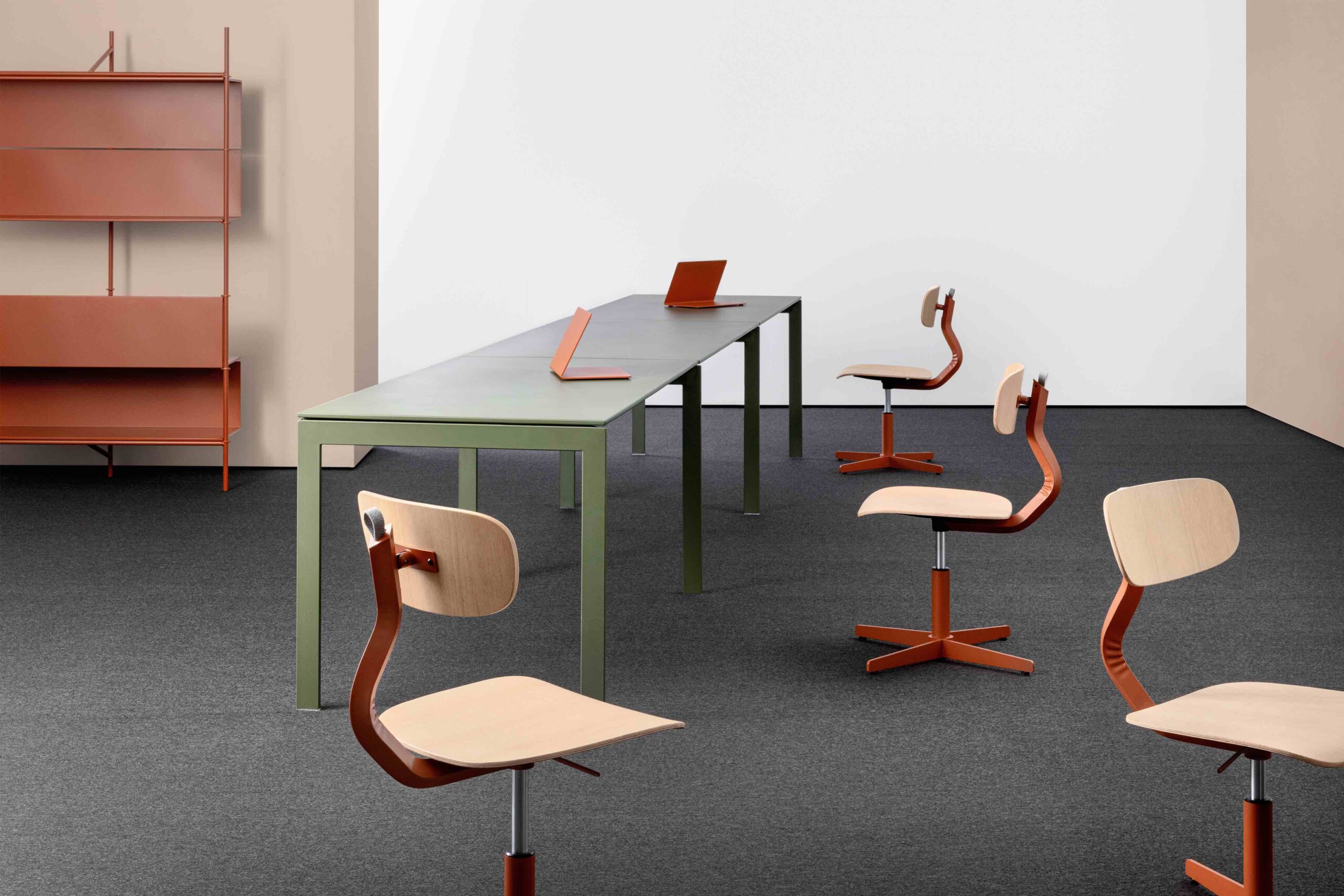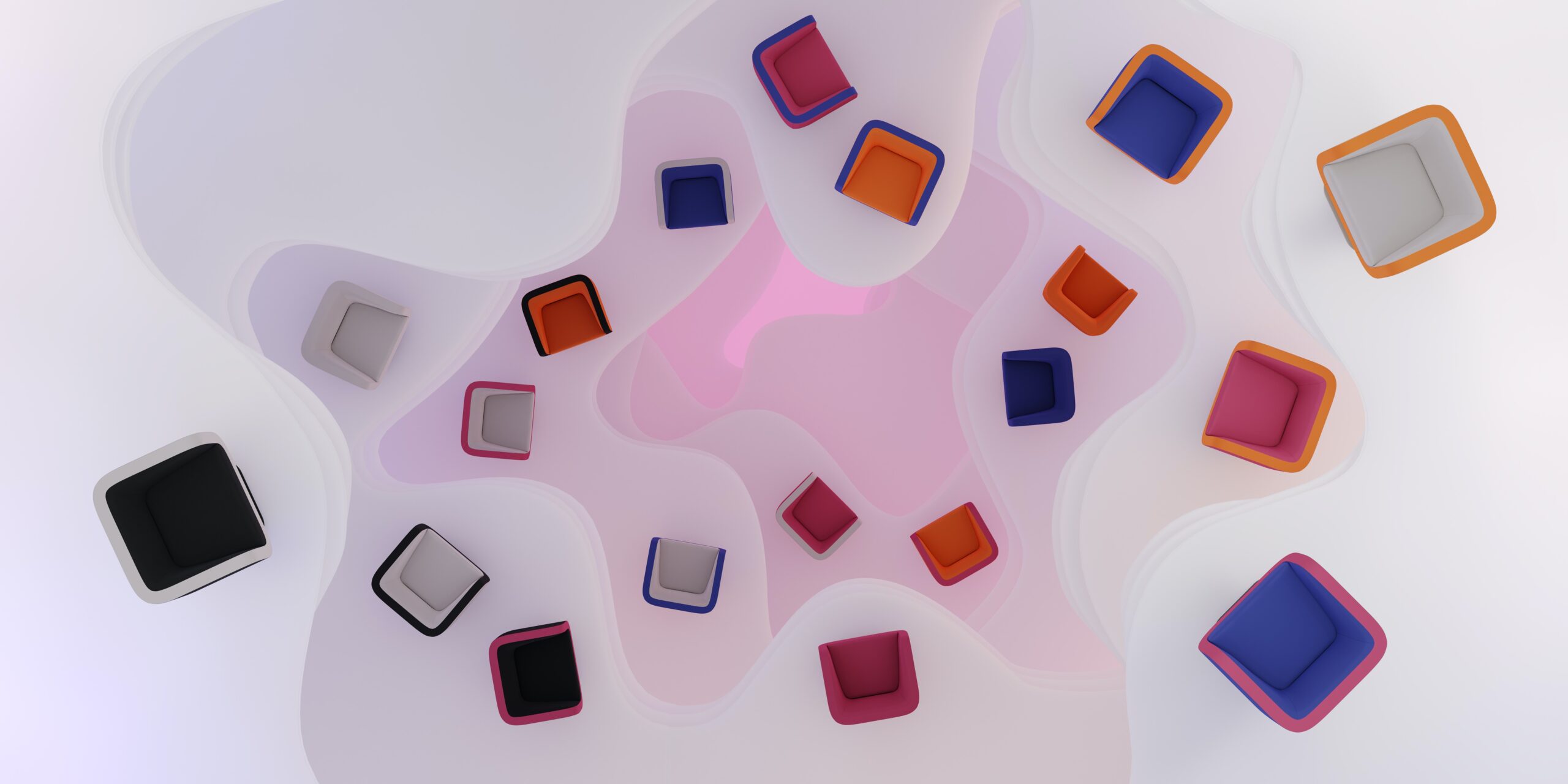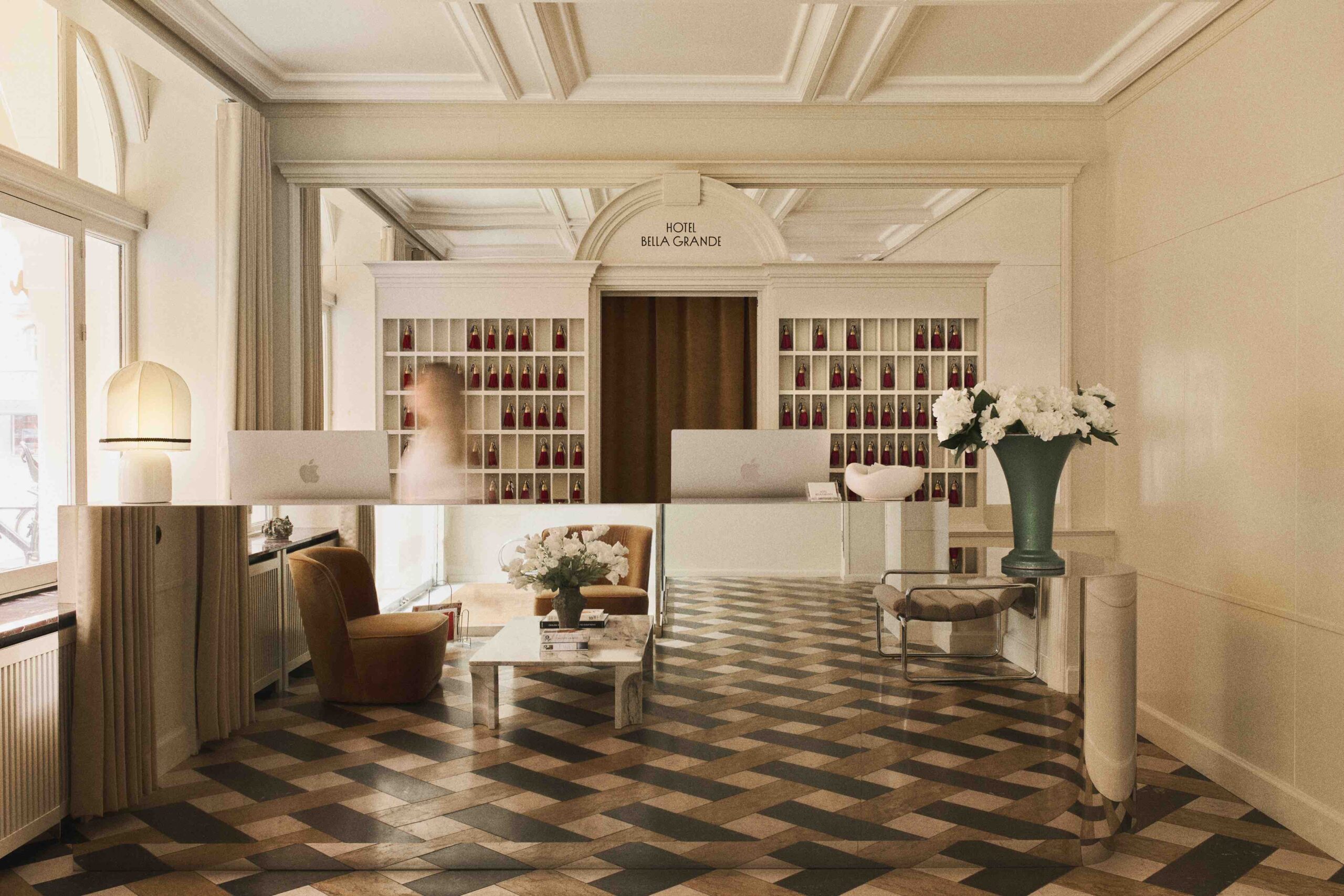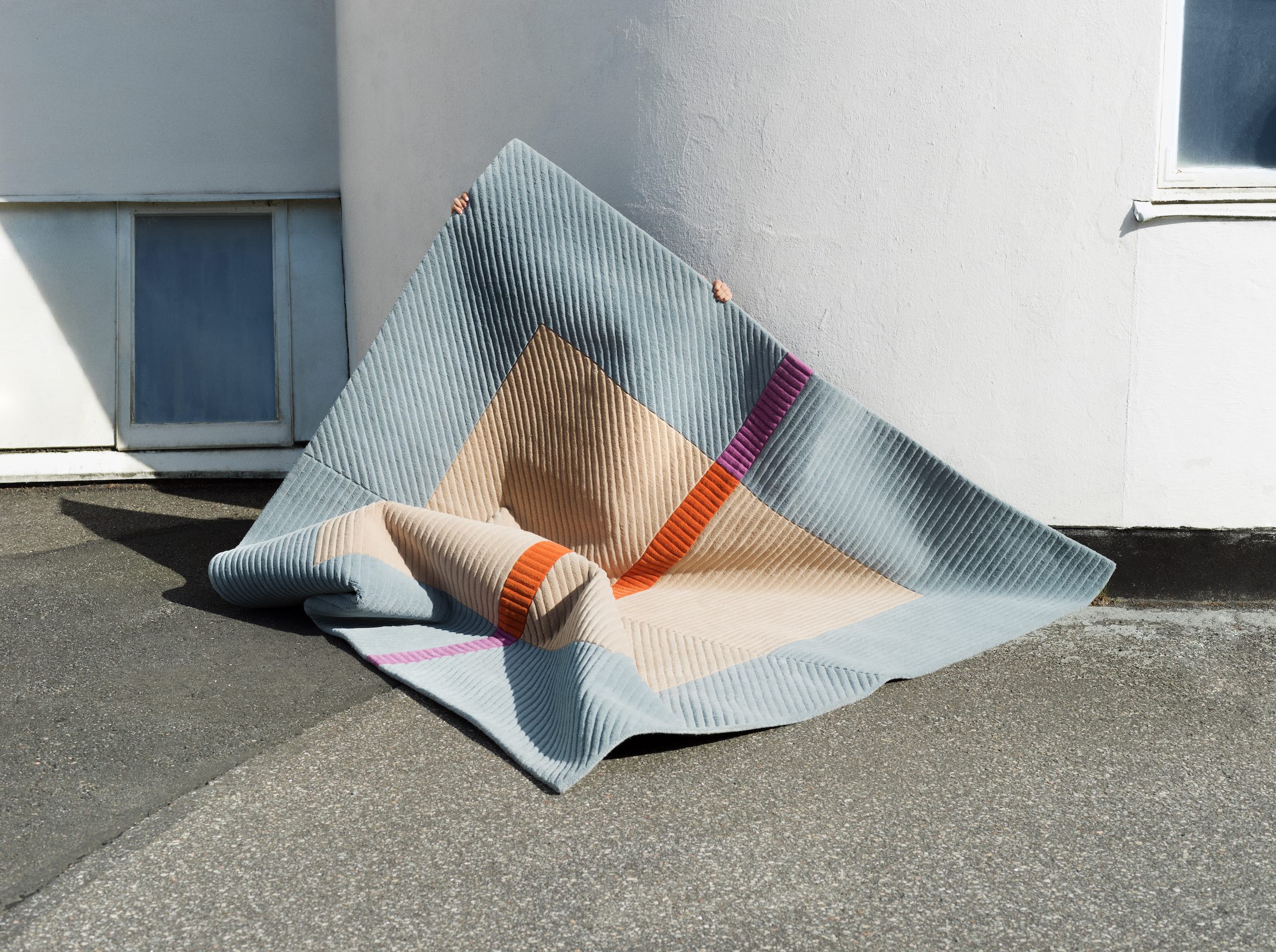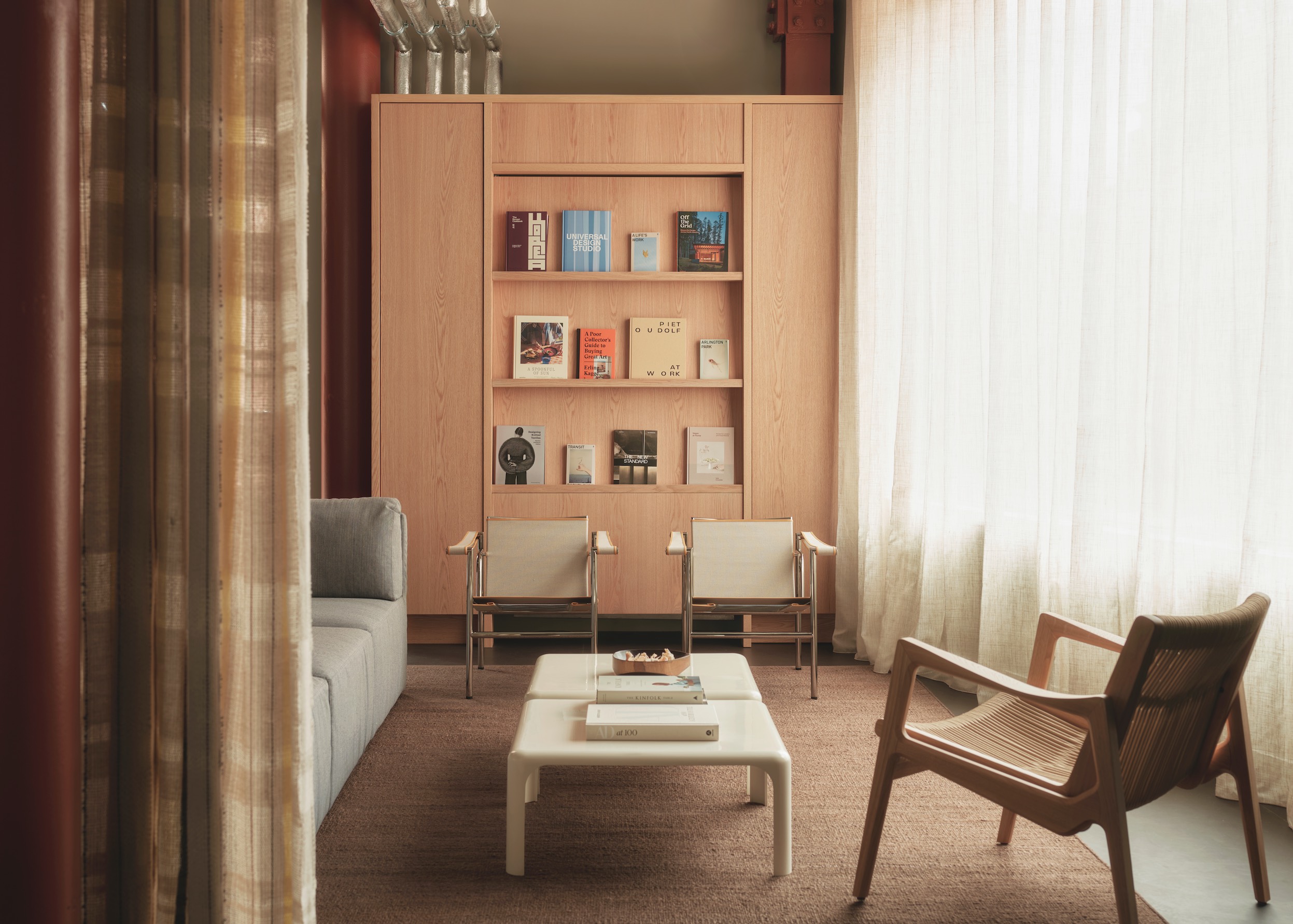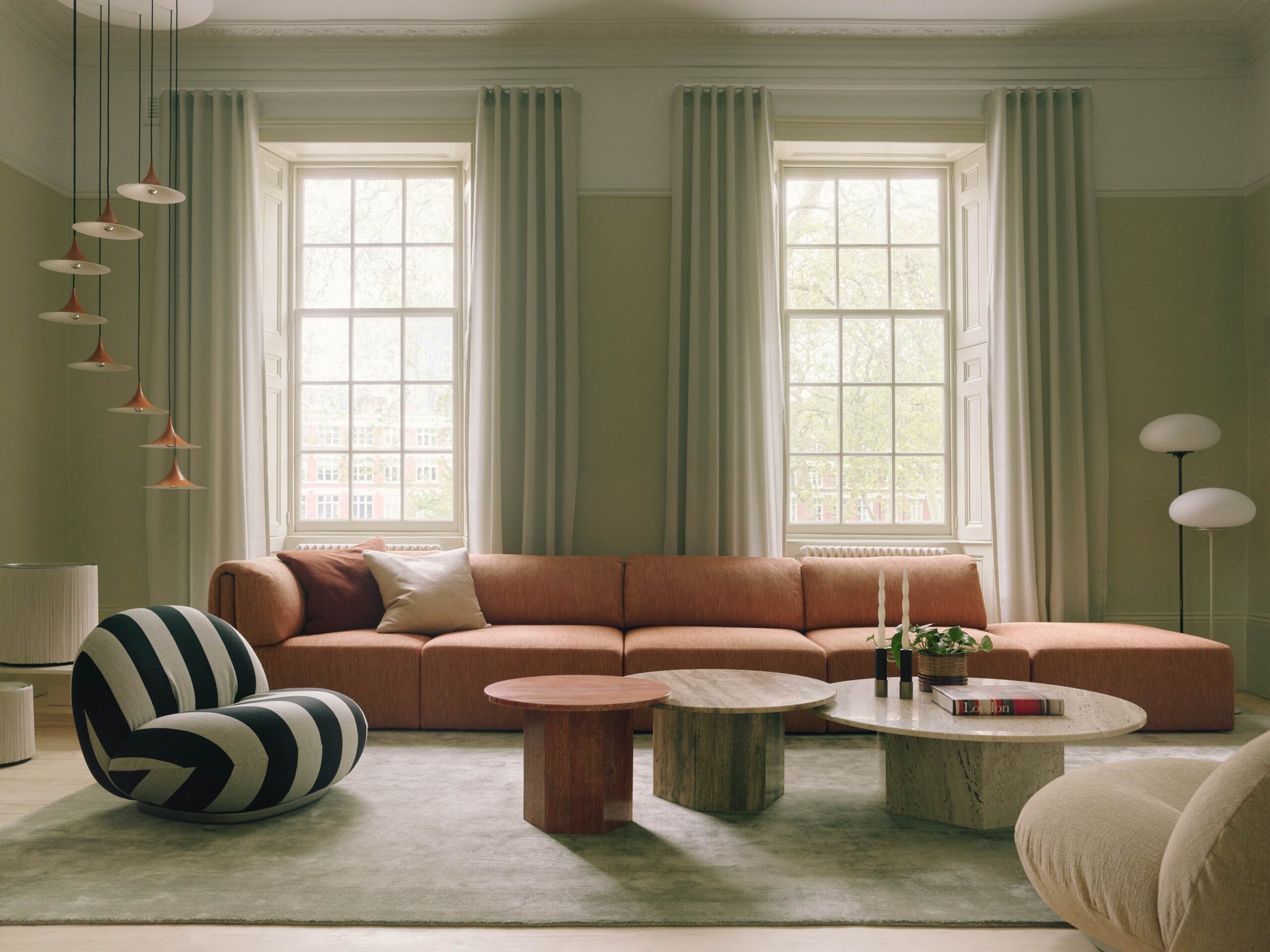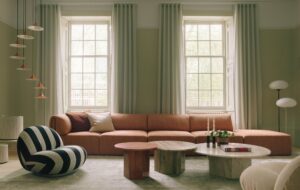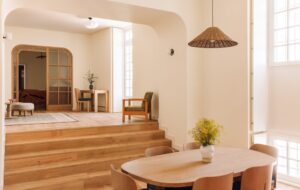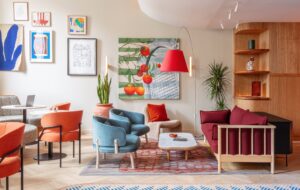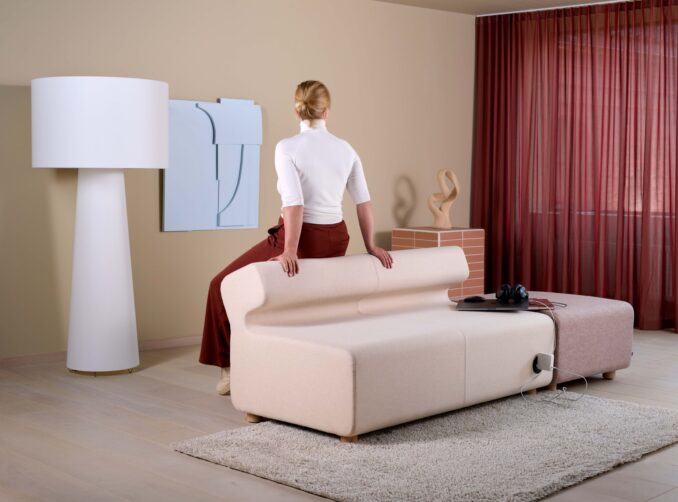
Fora Form’s culture of wellbeing through design can be seen in its product launches – comfortable, adaptable furniture that is just what is needed for the flexible post-pandemic office
Scandinavian countries have long been renowned for egalitarian values and creating a culture of wellbeing – and these ideals have been at the heart of Norwegian furniture brand Fora Form since its beginnings in the 1950s. “Norwegian culture is based on democratic and rational processes,” explains Pål Eid-Hviding, head of marketing at Fora Form. “So, we wholeheartedly believe that, when it comes to work, people evolve, innovate and find better solutions when we collaborate. Our designs reflect our society.”
It’s a point of view that is particularly pertinent in today’s post-pandemic climate, as organisations strive to encourage employees back to the office and a new vision of a hybridised, flexible and more caring workplace has emerged.
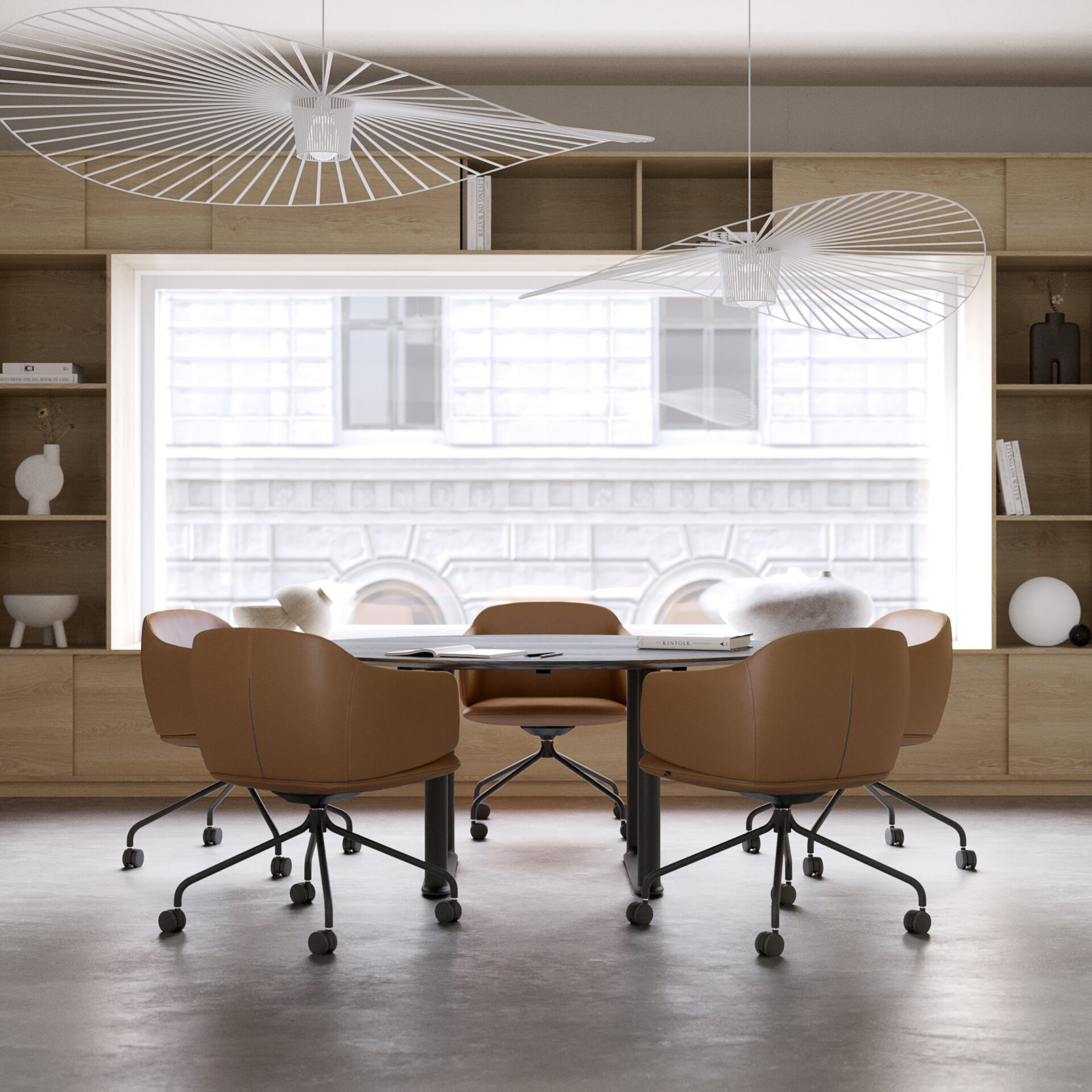
Recently, Fora Form distilled its brand values into ReWork, a collection of five key trends – flexibility, humancentric design, sustainability, creativity and inspiration – that are driving the evolution of the workplace today. And the brand’s most recent launches, the Otis sofa by Olav Eldøy and the Dwell chair by Mattias Stenberg, are a direct response to this philosophy.
“People want to be seen, acknowledged and valued,” says Eid-Hviding. “Offices have become more aware – and awareness is a good place to start if you are planning a mindful, humancentric office that ensures the wellbeing of all.”
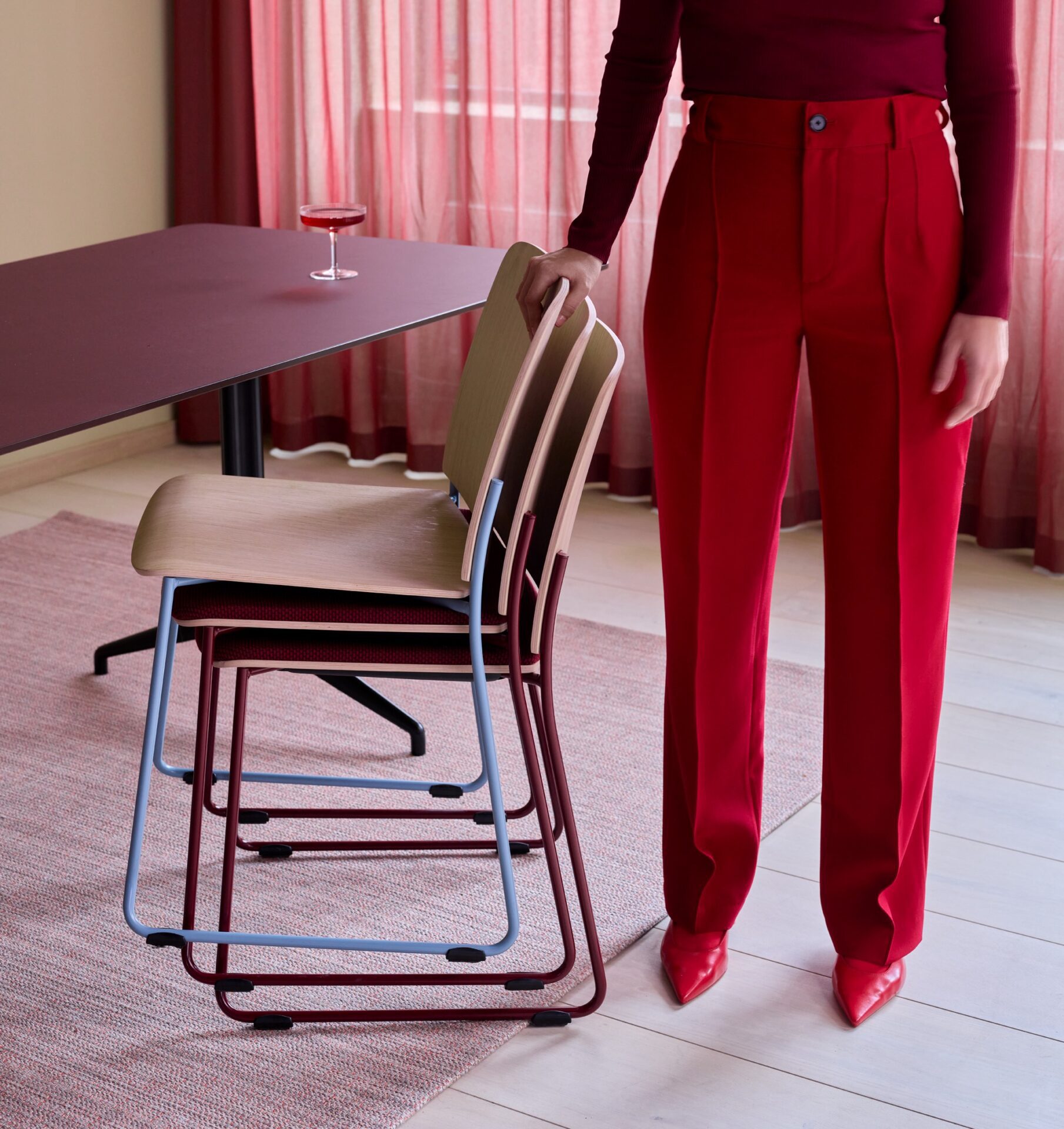
One of the biggest trends to be accelerated by the pandemic is the integration of home comforts into the workplace – combining the best of work-from-home with the opportunity to collaborate face-to-face and build community.
The Otis sofa, with its plump, inviting cushions piled into a sturdy frame, epitomises a more relaxed approach to breakout furniture. Fora Form sees it becoming the heart of a workplace, a spot for employees to gather and connect each morning. “Otis takes me back to when I was a kid lying in a wagon filled with hay,” reminisces Eldøy.
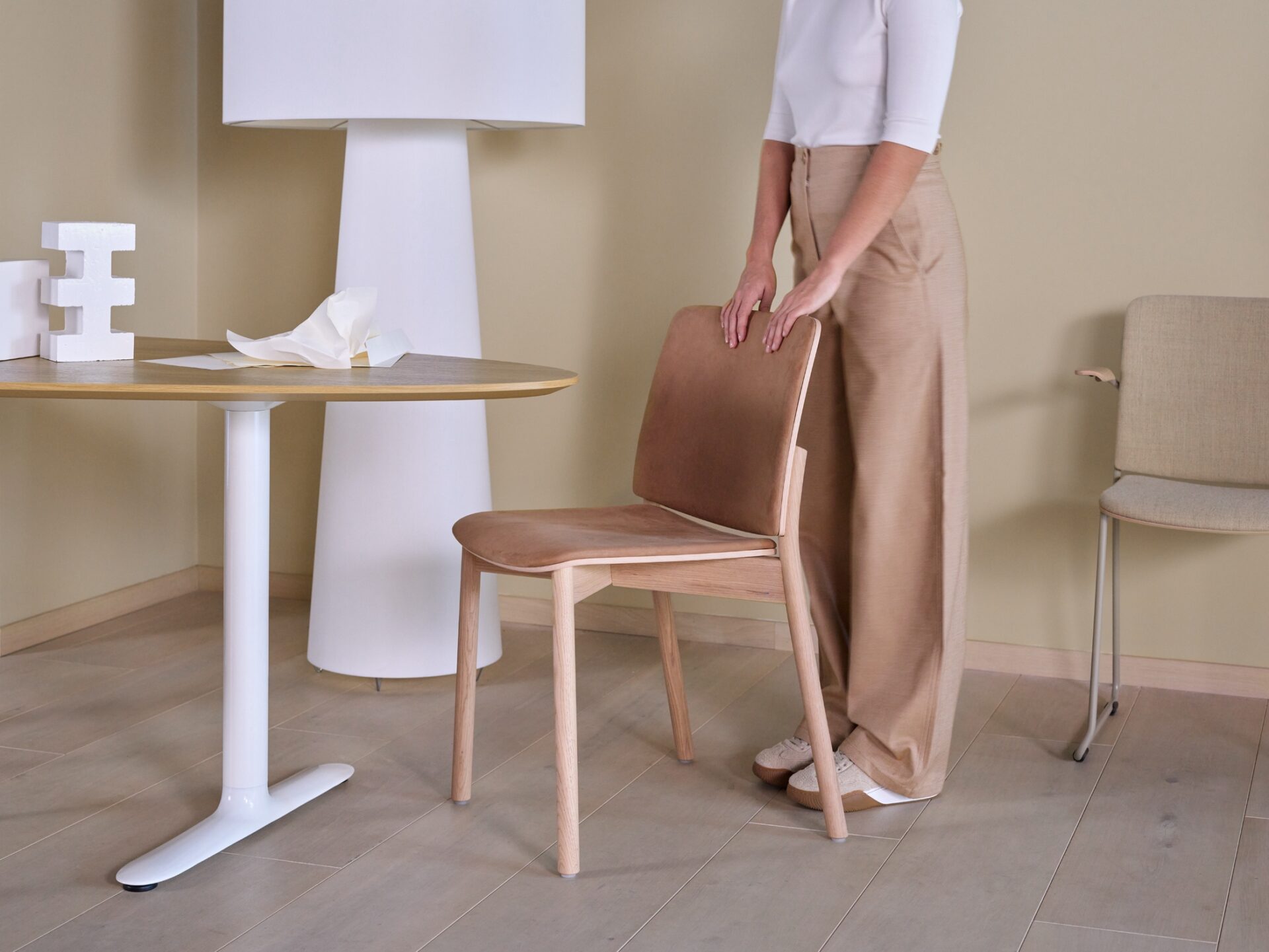
The Dwell chair offers a more structured seating solution, but one that encourages a similar sense of domestic comfort in often-busy openplan workspaces. “The pandemic really accentuated the importance of well-designed physical environments,” explains Stenberg. “Dwell is a chair to sit in, not on. It’s shaped to create a sense of calm and intimacy, even in an open and busy environment – almost like a warm embrace.”
While the ReWork philosophy perfectly captures the zeitgeist, it is clearly founded on the brand’s underlying and enduring ethos – a key element of which is a real and rational approach to sustainability.
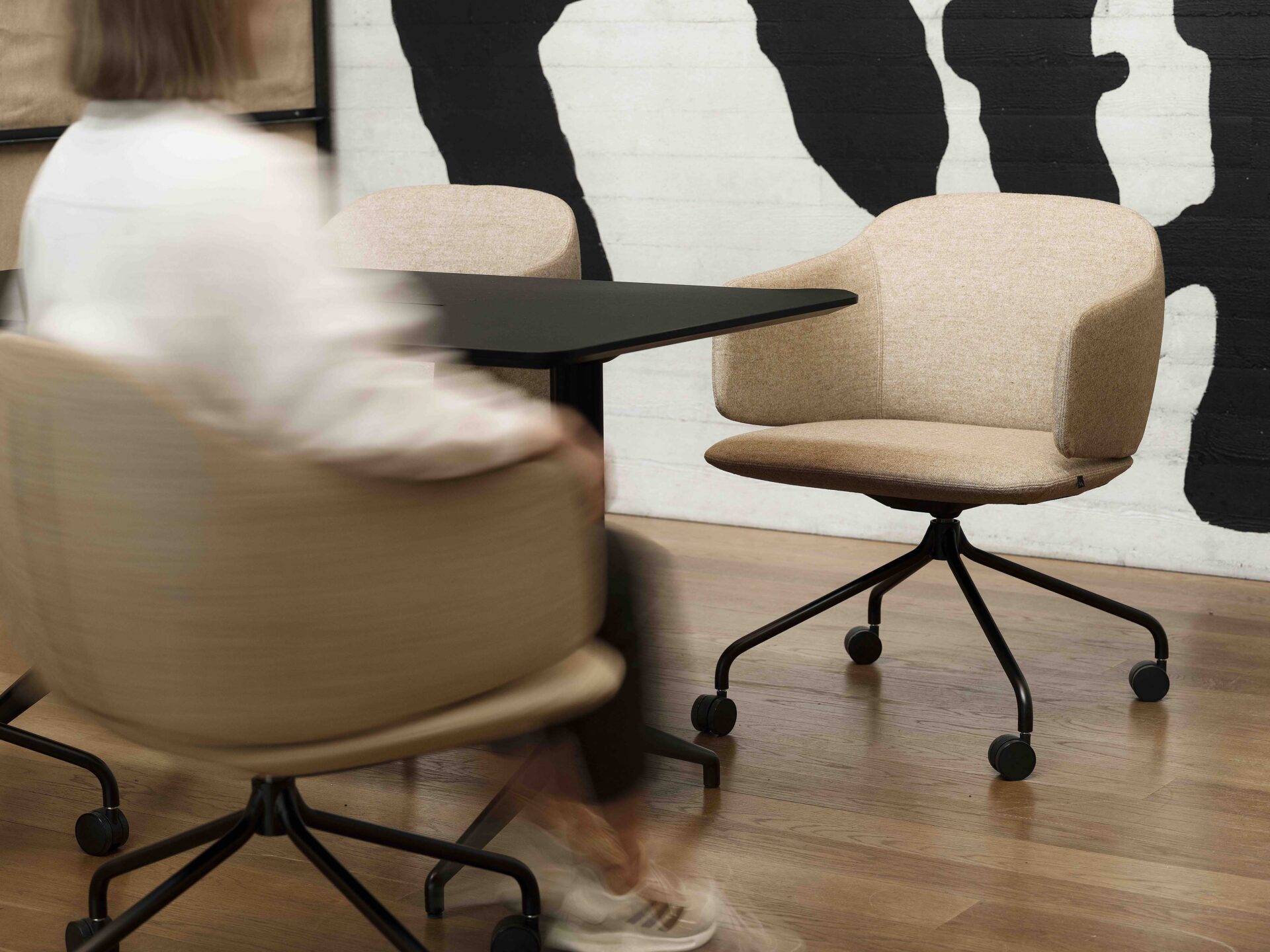
Take the Popcorn chair. Released in 1968, it has gone through several iterations, from its original fibreglass version to virgin plastic in the 2000s and a recently launched 100% recycled plastic version. It’s a sustainable journey that exemplifies Fora Form’s dedication to minimising the carbon footprint of every new piece and to create products with quantifiable and certifiable eco credentials.
Perhaps, most importantly – and like all of the brand’s furniture – it’s designed for longevity. “The furniture we produce needs to last,” says Eid-Hviding. “We are creating a new Norwegian cultural heritage.”
Images by Fora Form, Marius Beck Dahle, Sveinung Braathen & Inger Marie Grini
As featured in OnOffice 161, Winter 2022. Read a digital version of the issue for free here

